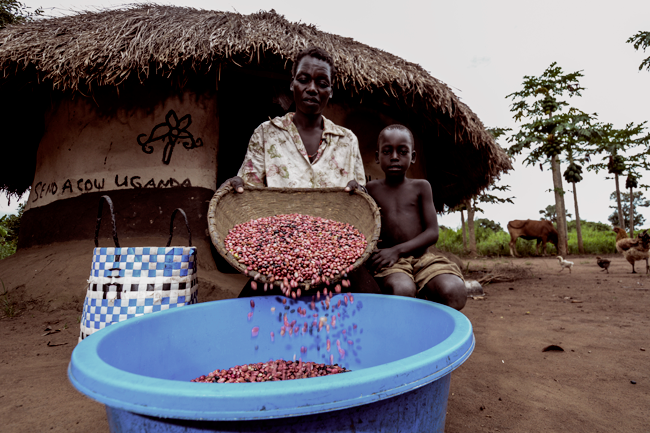In Uganda, refugees are being given drought-resistant ‘super beans’ to reduce their reliance on food aid and encourage self-sufficiency. The fast-growing, high-yield Nabe 15 super bean is being distributed by the UN’s FAO, as reported by the Guardian.
‘Uganda is currently overwhelmed by the high number of refugees, especially those from South Sudan. Humanitarian partners are finding it difficult to maintain the rations of food assistance necessary per household,’ says Beatrice Okello, senior programme manager at the FAO in Uganda.
While Uganda hosts more than 1 million refugees from South Sudan, the World Food Programme was recently forced to cut food rations due to lack of funds. Now the FAO and its partners are distributing the beans, along with seeds for staple crops such as maize.
The new variety, which is not genetically modified, is sourced from the Pan-Africa Bean Research Alliance’s Kawanda gene bank. In comparison to local varieties, Nabe 15 is more resilient to pests and disease, grows almost anywhere, and takes up to just 70 days to mature (as opposed to the standard 90 days). In addition, 2 000 kg of beans per hectare can be grown from 50 kg of seeds.
‘The majority [of refugees] come from an agricultural background,’ says Okello. ‘Providing the seeds helps them to restart a livelihood for their household and ensure food security.’
















